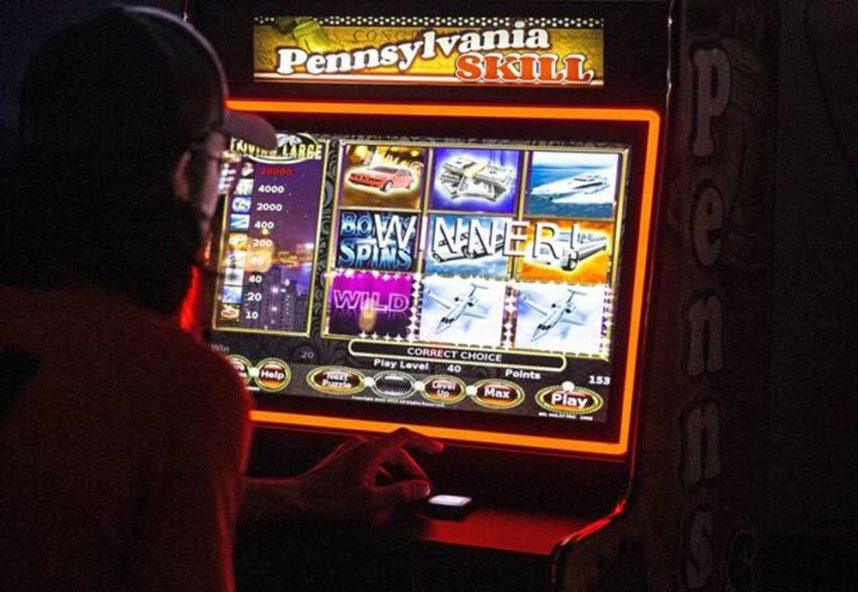Pennsylvania Supreme Court Will Determine Fate of Controversial Skill Games
Posted on: November 27, 2025, 05:52h.
Last updated on: November 26, 2025, 02:52h.
- The Pennsylvania Supreme Court is reviewing the legality of skill games
- The slot-like games include elements of skill, which impact payout rates
Last week, the Pennsylvania Supreme Court heard the case for and against skill games, slot-like gaming devices that casino attorneys argue constitute illegal gambling.

The state’s highest court will determine if the skill component of skill games renders the machines immune from the Pennsylvania Gaming Act.
Proponents of the games developed by Georgia-based Pace-O-Matic and assembled locally by Miele Manufacturing, a company based in Lycoming County, say players can alter their win rates, and therefore the games are not fully dependent on luck as are casino slots.
The Supreme Court is reviewing whether lower state courts got it right in determining that the Gaming Act and Pennsylvania Criminal Code do not apply to skill games. The machines have remained inside convenience stores and gas stations, grocery stores, corner markets, restaurants, and bars since a judge in Beaver County ruled in 2014 that the gaming apparatuses are not illegal.
Definition of Gambling
The Pennsylvania skill gaming appeal is brought by the state Attorney General’s Office and the Department of Revenue. Arguing the case on behalf of the state, Senior Deputy Attorney General Susan Affronti said the definition of gambling lends to skill games.
Gambling is the hope of gaining something beyond the amount played,” Affronti declared before the justices. “What is this game really about? This isn’t a game of Whac-A-Mole or Skee-ball. This is a slot machine.”
Skill games, commonly branded Pennsylvania Skill in the commonwealth, allow players to alter their payout rate by identifying winning paylines. A slot machine automatically does that.
Skill games also allow players to recoup their losses through a memory challenge called “Follow Me.” The bonus round tasks the player with repeating an increasingly complicated series of colors not unlike the Hasbro classic electronic short-term memory game Simon.
Skill game attorneys say a player, because of the Follow Me round, has the potential to achieve a payout rate of 105%. Attorney Matthew Haverstick, representing Capital Vending Company, which was charged in a 2019 state police raid for providing skill games to a Dauphin County business, said the Pennsylvania Gaming Control Board requires casino slots to be programmed to pay out above 85%. Since slots cannot be programmed to pay out above 100%, a skill game “can never be a slot machine as defined under the [Gaming Act] statute.”
Haverstick added that since skill game players can win every time, should they endure the Follow Me option, he contends that skill games cannot be lumped in with slots.
The Pennsylvania Supreme Court is expected to render its opinion on skill games in the coming months.
Skill Game Regulation
The skill game industry is calling on state lawmakers in Harrisburg to regulate and tax its games. Proponents claim a reasonable tax rate, one much lower than the casino slot tax of 55%, is needed to allow the machines to continue benefiting small businesses.
Pennsylvania Gov. Josh Shapiro (D) wants to legalize skill games to generate new tax revenue. He’s called on the General Assembly to send him a skill game bill with a 52% state take.
Other bills have suggested lower state taxes, with one measure seeking only a 16% state tax.
Last Comments ( 2 )
Given the significant time required to complete a single round of the "follow me" game and the small amount that one can win if actually successful in completing the "follow me" game, a player would typically make money faster working at a minimum wage job than they would by playing the "follow me" game -- which is why hardly anyone ever plays this part of these games. Moreover, requiring gamblers to manually identify winning payout lines instead of identifying them automatically just creates more opportunities for player error that can further reduce the effective payout rate of skill games below what must legally be paid by regulated slot machines. In practice, skill games function equivalently to slot machines with illegally low payout rates. They should be treated as such.
There is no need for Pennsylvania decision-makers to overcomplicate this. Every brand-new member of Gamblers Anonymous in Pennsylvania cites skill games as the #1 factor that attributed to their gambling addiction. Not online gambling, not scratch-off lottery tickets, and not brick-and-mortar casinos. PA skill games are always mentioned, without exception. Those same PA decision-makers need to be asked, "How many open meetings of Gamblers Anonymous in Pennsylvania have you attended?" The skill games ARE gambling machines. Do we need to continue asking that about "skill or gambling" distinction while expecting a different answer? Find those open GA meetings in Pennsylvania simply by going to gamblersanonymous org. Then attend one.